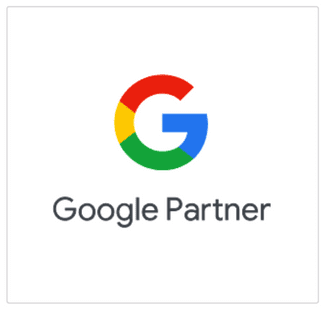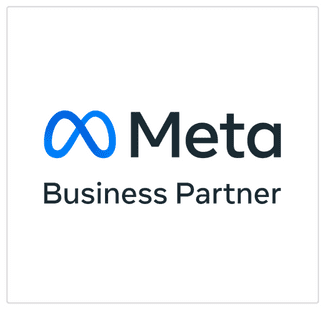If you own a website you already know that SEO (Search Engine Optimization) has become essential for online success. With a huge number of searches performed daily on Google and other search engines, being top of the search results can make the difference between success and stagnation for online businesses. In this battle for visibility, the concept of E-E-A-T is becoming increasingly relevant and vital to any successful SEO strategy.
Recent statistics show that approximately 93% of all online experiences begin with a search on a search engine like Google. Thus, every online business faces fierce competition to attract users’ attention and to position itself ahead of the competition. That’s why understanding and applying E-E-A-T principles are crucial to achieving higher rankings in search results and attracting quality traffic to your website.
The concept of E-A-T, originally known as Experience, Authority and Trust, was introduced in 2014, marking a significant shift in how Google evaluates and ranks online content. However, in December 2022, another “E”, Direct Experience, was added to emphasize the direct importance of the author in creating and delivering quality content.
What is E-E-A-T and why is it important?
E-E-A-T, short for Experience, Expertise, Authoritativeness and Trust, is a fundamental concept in the world of SEO and search engine optimization. This acronym reflects the evaluation criteria used by Google to determine the quality and relevance of online content. But why is E-E-A-T so important in the online environment?
With billions of searches performed daily on Google and other search engines, ensuring that the results provided are relevant and trustworthy is essential for users. That’s why Google places a strong emphasis on identifying and promoting content that demonstrates authentic expertise, deep domain expertise, authority and trust.
For example, when a user searches for information about a particular medical condition, Google wants to present results from credible and expert sources that provide accurate and up-to-date information. Thus, content that conforms to E-E-A-T principles is more likely to rank higher in search results, which means greater visibility and access to potential customers or readers.
Therefore, for any website owner, online business or SEO (Search Engine Optimization) agency, understanding and applying the concept of E-E-A-T in their content and SEO strategies is essential to achieve long-term online success. Proper integration of E-E-A-T principles can lead not only to better rankings in search results, but also to building a solid reputation and loyal user base.
Key elements of E-E-A-T
E-E-A-T is based on four main elements:
- Experience
The author’s direct experience with the subject matter is crucial. Google looks for authenticity and practical experience in the content provided. It is important that authors have in-depth knowledge and share their personal or professional experiences in the field.
- Expertise
Expertise is related to the author’s level of knowledge and competence in a particular field. Google assesses whether the author has the ability to provide accurate, up-to-date and relevant information on the subject matter. Demonstrate that you are an expert in the field by providing high quality and detailed content.
- Authoritativeness
Authority refers to the reputation and credibility of the author or website. Google looks at whether the author or site is recognized in their field and has a solid history of providing quality content. It builds authority by creating trusted content and interacting with other trusted sites.
- Trust
Trust is fundamental to E-E-A-T. Users and search engines need to trust that the information provided is accurate and reliable. To earn trust, make sure your site is secure and that you provide accurate and verifiable data.
Read more ➡️ SEO for landing pages
How to improve E-E-A-T for your website?
Create high-quality content:
Focus on providing unique, informative and relevant content to your audience. You can create articles, guides or videos that offer solutions to your audience’s specific problems. For example, if you have a fitness blog, you can write about the most effective exercises or offer healthy eating tips.
Provide author information and transparency
Google wants to know that the person writing content is a legitimate source of information. Thus, it is essential to highlight transparency and provide author information on your site. Be sure to create an “About Us” page to introduce your team (if applicable) and individual author pages to highlight specific writers. Author bios help establish transparency and E-E-A-T by showing author credentials and previous works.
In addition, you can leverage author expertise by collaborating with authoritative sites in your field. It’s a great way to build your reputation and strengthen your authority in the industry. Writing guest articles for relevant and trusted sites in your niche is an effective way to promote your expertise and improve your E-E-A-T.
Finally, if you have the opportunity, hire experts in your field. Even if you’re a small business owner or don’t have the funds to do so, you can hire talented writers to research and create informative, high-quality content. By investing in experience and expertise, you’ll be able to strengthen your authority and improve your E-E-A-T in the eyes of search engines and users.
Use credible sources
When creating content, it’s always best to go directly to the source to establish credibility. Always link to official sources, studies, research papers, etc. This can even include tweets and blog posts from experts in your field. It is also best to use reliable sources. These can vary depending on the field, but can include academic databases, news publications or websites of established experts and agencies.
By using appropriate and verified sources, you ensure that you are providing high quality and trusted content to your users. By including links to official sources and using trusted sources, you contribute to improving the ranking and reputation of your website in the eyes of search engines and your audience.
Use structural data for people:
Implementing person markup schema on your “About Us” page is a great way to highlight information about your team members and provide a better understanding of the relationship between the author and their content. By adding photos, names, roles and qualifications, you will help search engines better understand your content and display it appropriately in search results.
Keep your content fresh:
Regularly add new content to your site to show that your site is well-maintained and that you are constantly offering new knowledge in your field. Regularly updating and adding new content helps keep users interested and improves your ranking in search results. Make sure you update your content according to trends and changes in the industry to stay relevant and informed for your audience.
Improve user experience:
Make sure your website is easy to navigate and offers a pleasant user experience. This can include optimizing the design and interface to make it easier to access information and reduce the time it takes to find what you’re looking for. For example, you can use clear and intuitive menus, optimise page load times and integrate interactive elements to increase engagement.
Build an online reputation:
Actively participate in the online community and build strong relationships with other professionals in your field. This can include engaging in forums and discussion groups relevant to your industry, collaborating with other sites or blogs in your field and attending industry events and conferences. By building a solid online reputation, you will be able to strengthen your authority and increase your visibility in your field.
Optimise the structure and navigation of your website:
Make it easier to find and access information by properly organizing your website. Make sure menus and categories are well defined and easy to navigate, and information is structured and logically grouped. You can also use advanced search functions and filters to allow users to quickly find content relevant to them.
Improves loading speed:
Make sure your site loads quickly to provide a pleasant user experience. Page load speed is a crucial factor in user experience and can affect your ranking in search results. You can improve the loading speed of your website by optimising images, reducing unnecessary code and using a fast and reliable hosting service.
Over the years, Google has placed increasing importance on the quality of content for users, reflected in updates to the Search Quality Score Guidelines. These updates have led to the evolution of the E-E-A-T concept, a crucial pillar in the SEO world.
💡Remember that when you create content, you don’t create it for search engines, you create it for people. 💡
Therefore, it is essential that it is as relevant and useful as possible to the target audience. Google’s E-E-A-T updates emphasise the importance of experience, expertise, authority and trust in creating and promoting content online.
Want to maximize your online potential, but feel overwhelmed by the complexity of SEO optimization? Don’t worry! Contact us now to find out how an SEO agency can help you succeed online.
Our team of experts is here for you, ready to provide customized SEO services that fit your website’s unique needs. With a strategic approach and extensive experience in SEO optimization, we’re the right choice to take your business to the next level online.







